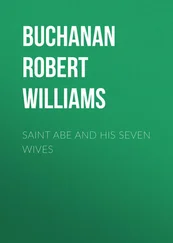Robert Buchanan - Foxglove Manor, Volume I (of III)
Здесь есть возможность читать онлайн «Robert Buchanan - Foxglove Manor, Volume I (of III)» — ознакомительный отрывок электронной книги совершенно бесплатно, а после прочтения отрывка купить полную версию. В некоторых случаях можно слушать аудио, скачать через торрент в формате fb2 и присутствует краткое содержание. Жанр: foreign_antique, foreign_prose, на английском языке. Описание произведения, (предисловие) а так же отзывы посетителей доступны на портале библиотеки ЛибКат.
- Название:Foxglove Manor, Volume I (of III)
- Автор:
- Жанр:
- Год:неизвестен
- ISBN:нет данных
- Рейтинг книги:5 / 5. Голосов: 1
-
Избранное:Добавить в избранное
- Отзывы:
-
Ваша оценка:
- 100
- 1
- 2
- 3
- 4
- 5
Foxglove Manor, Volume I (of III): краткое содержание, описание и аннотация
Предлагаем к чтению аннотацию, описание, краткое содержание или предисловие (зависит от того, что написал сам автор книги «Foxglove Manor, Volume I (of III)»). Если вы не нашли необходимую информацию о книге — напишите в комментариях, мы постараемся отыскать её.
Foxglove Manor, Volume I (of III) — читать онлайн ознакомительный отрывок
Ниже представлен текст книги, разбитый по страницам. Система сохранения места последней прочитанной страницы, позволяет с удобством читать онлайн бесплатно книгу «Foxglove Manor, Volume I (of III)», без необходимости каждый раз заново искать на чём Вы остановились. Поставьте закладку, и сможете в любой момент перейти на страницу, на которой закончили чтение.
Интервал:
Закладка:
The Rev. Charles Santley had been Vicar of St. Cuthbert’s for little less than a year. He was unmarried, just turned thirty, a little over the middle height, and remarkably handsome. It was not to be wondered at that, with such recommendations, the new vicar had at the very outset fascinated the maids and matrons of his congregation. A bright shapely face, with soft dark eyes, a complexion almost feminine in its clear flush, a broad scholarly forehead, black hair slightly thinned with study on the brow and at the temples, black moustache and short curling black beard, – such was the face of the vicar as he stood uncovered before you. His voice was musical and sympathetic; the pressure of his hand invited confidence and trust; his soft dark eyes not only looked into your heart, but conveyed the warmth and eagerness of his own; you felt instinctively that here you might turn for help which would never be found wanting, and seek advice that would never lead you astray, appeal for sympathy with a certainty that you would be understood, obey the prompting to transfer the burthen of spiritual distress with a sure knowledge that your self-esteem would never be wounded. Of course there were ladies of a critical and censorious disposition among his flock, but even these were forced to acknowledge the charm of his presence and the kindliness of his disposition. Among the men he was less enthusiastically popular, as was natural enough; but he was still greatly liked for his frankness and cordiality, and his keen intellect and sterling common sense commanded their respect.
On one thing you might always reckon at St. Cuthbert’s – a thoughtful, eloquent sermon, delivered in a voice full of exquisite modulations. It happened often enough that the preacher forgot the capacities of his hearers, and became dreamy and mystical; but, though you failed to comprehend, you were conscious that the fault lay less with him than with your own smaller spiritual nature. This, too, happened only in certain passages, and never throughout an entire discourse. He began on the grass, as the lark does, and gradually rose higher and higher in the brightening heavens till your vision failed; but, if you waited patiently, he descended again to earth, still singing.
On this Sunday afternoon, preaching from the text in the Acts, he held his hearers spell-bound at the outset. Referring to the memorable discourse in which the text occurs, he conjured up before them Athens – glittering, garrulous, luxurious, profligate – the Athens St. Paul had seen. The vivid picture was crowded with magnificent temples, countless altars, innumerable shapes of mortal loveliness. Here was the Agora, with its altar of the Twelve Gods, and its painted cloisters, and its plane trees, beneath whose shade were disputing groups of philosophers, in the garb of their various sects. Gods and goddesses, in shining marble, in gold and ivory, caught the eye wherever it fell. There were altars to Fame and Health and Energy, to Modesty and Persuasion, to Pity and to Oblivion. On the ledges of the precipitous Acropolis glittered the shrines of Bacchus and Æscülapius, Venus, Earth, and Ceres. Over all towered the splendid statue of Pallas, cast from the brazen spoils of Marathon, visible, as it flashed in the sun, to the sailor doubling the distant promontory of Sunium. Every divinity that it had entered into the imagination of man to, conceive or the heart of man to yearn for, every deified attribute of human nature, had here its shrine or its voluptuous image. “Ye men of Athens, all things which I behold bear witness to your carefulness in religion.” It was easier, said the Roman satirist, to find a god than a man in Athens. And yet these men, with all their civilization, with all their art and poetry and philosophy, had not found God, and, notwithstanding all the statues and altars they had erected, were aware that they had not found Him; for St. Paul, as he traversed their resplendent city, and beheld their devotions, had found an altar with this inscription, “ To the Unknown God. ” Referring then to those “certain philosophers of the Epicureans and of the Stoics,” who encountered the apostle, he briefly sketched the two great systems of Greek speculation, and their influence on the morality of the age: the pantheism of the Stoics, who recognized in the universe a rational, organizing soul which produced all things and absorbed all things, – who perceived in pleasure no good, in pain no evil, – who judged virtue to be virtue and vice vice, according as they conformed to reason; the materialism of the Epicureans, who perceived in creation a fortuitous concourse of atoms, acknowledged no Godhead, or, at best, an unknowable, irresponsible Godhead, throned in happy indifference far beyond human imptration, – taught that the soul perished as the body perished, and was dissipated like a streak of morning cloud into the infinite azure of the inane. Following Paul as the philosophers “took him and brought him unto Areopagus,” where from immemorial time the judges, seated on benches hewn out of the rock, had sat under the witnessing heavens, passing sentence on the greatest criminals and deciding the most solemn questions of religion, he glanced down once more at the city glittering with temples and thronged with gods and goddesses, and bringing into broad contrast the radiant Apollo and the voluptuous Aphrodite, with the scourged and thorn-crowned figure on the cross, he read the message of the apostle to the pagan world. On how many altars to-day might not the words “To the Unknown God” be fittingly inscribed! “In Him we live, and move, and have our being;” but how few of us have “felt after” and found Him! In a strain of impassioned eloquence the preacher spoke of that unseen sustaining presence, which brooded over and encompassed us; of the yearning of the human heart for communion with the Creator; of the cry of anguish which rose from the depths of our being, when our eyes ached with straining into the night and saw nothing, when our quivering hands were reached out into the infinite and clasped but darkness; of the intense need we felt for a personal, tangible, sympathetic Being, for an incarnation of the divinity; of those ecstatic ascensions of the soul, in which man “felt after” and actually touched God; and, as he spoke, his glowing words gradually ceased to convey any definite meaning to the great majority of his hearers: but one face, flushed with joyous intelligence, one young beautiful face, with large, liquid blue eyes of worship, and with eager tremulous lips, was all the while turned fixedly up to his.
Seated in a little curtained nook near the organ, a slim, fair girl of two and twenty watched the preacher with almost breathless earnestness. She was a bright little fragile-looking blossom of a being, who seemed scarcely to have yet slipped out of her girlhood. Her face was of that delicate white, tinged with a spot of pink, which so often indicates a consumptive constitution, but in her case this delicacy of complexion was owing rather to the fineness of the material of which nature had moulded her. Light fine hair, in silky confusion rather than curls, clustered about her forehead and temples. Her little hands still clasped the music-book from which she had been playing the accompaniment of the hymn – for Edith Dove was the organist of St. Cuthbert’s – as though from the outset she had been too absorbed to remember that she was holding it.
Occasionally the vicar turned towards the aisle in which she sat, and his glance rested on her for a moment, and each time their eyes met Edith’s heart beat more rapidly, and a deeper tinge of rose-colour brightened her cheeks. But Mr. Santley showed no sign of kindred emotion; he was wholly absorbed in the fervid thoughts which flowed from his lips in such strains of exaltation. As his eyes wandered over the congregation, however, he suddenly saw another face which was turned attentively towards him, and which made him pause abruptly. He stopped in the midst of a sentence. He felt the action of his heart cease, and he knew that the blood was driven from his cheeks. He looked dazedly down at his manuscript, but was unable to find the place where his memory had failed him. For a few seconds there was dead silence in the church, and the eyes of the congregation were turned inquiringly towards the pulpit. Then, stammering and flushing, he resumed almost at haphazard. But the enthusiasm of the preacher had deserted him; his attention was distracted by a rush of recollections and feelings which he could not banish; the words he had written seemed to him foreign and purposeless, and it was only with a resolute effort that he constrained himself to read the parallel he had drawn between the pantheism and materialism of the days of St. Paul and those of our own time. To the close of his sermon he never once ventured to turn his eyes again in the direction of that face, but kept them fixed resolutely upon his manuscript. Not till he had descended the pulpit steps and was crossing the chancel, did he hazard a glance across the church towards that disquieting apparition.
Читать дальшеИнтервал:
Закладка:
Похожие книги на «Foxglove Manor, Volume I (of III)»
Представляем Вашему вниманию похожие книги на «Foxglove Manor, Volume I (of III)» списком для выбора. Мы отобрали схожую по названию и смыслу литературу в надежде предоставить читателям больше вариантов отыскать новые, интересные, ещё непрочитанные произведения.
Обсуждение, отзывы о книге «Foxglove Manor, Volume I (of III)» и просто собственные мнения читателей. Оставьте ваши комментарии, напишите, что Вы думаете о произведении, его смысле или главных героях. Укажите что конкретно понравилось, а что нет, и почему Вы так считаете.












